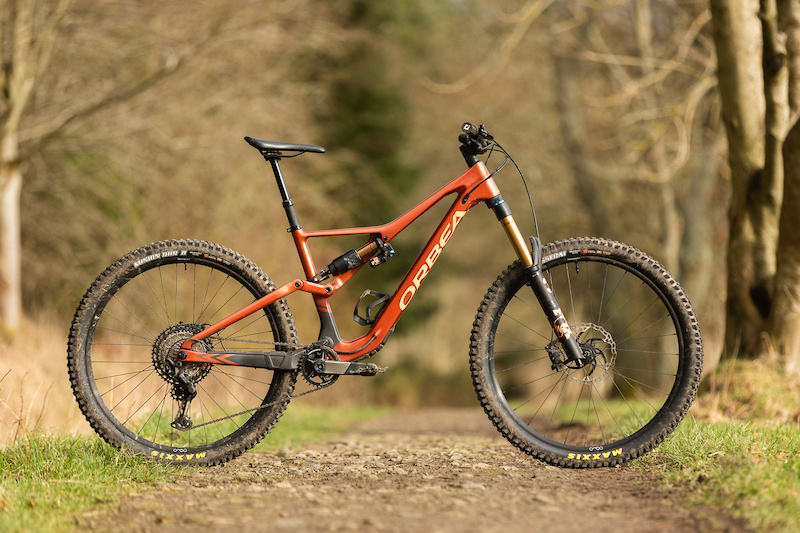I felt comfortable quickly on the Rallon thanks to the self-selected high-rise bar, long dropper post and 40mm stem. The shock needed some fettling to unlock the best performance and improve suppleness, but it was never the bump-swallowing “mini DH bike” that the 167mm travel would suggest. I rode it back-to-back with the Scott Ransom, which has similar suspension and geometry numbers, and the Scott felt a little more comfortable on rough terrain and big hits.
I measured the useable travel after this test and discovered I was struggling to get more than 159 mm of squish out of the Rallon (the Scott over-delivered at 172 mm measured in the same way), The helped explain the difference in plushness between the bikes. It’s not that the Rallon is harsh, but it’s not a plow. The X2 has a substantial bottom-out bumper, which in this case probably restricts the useable travel and makes the suspension less good at soaking up the big hits than you might expect from the quoted travel. The combination of a progressive linkage, air spring and bottom-out bumper which affects a significant fraction of the end-stroke add up to make the Rallon less good at erasing bumps than some bikes in this travel bracket.
Don’t get me wrong: the small-bump sensitivity is good, (really good if you optimise the shock setup for it) it just feels like a 160 mm travel bike rather than 167 mm, because that’s effectively what it is. The flip side is that there’s no hint of harshness when you get to the end of the (usable) travel on a heavy landing (I have a 2-meter drop with a flat-ish landing that I use to test this), and there’s plenty of support deep in the stroke when pushing into a berm or compression. Pump or pedal out of a corner and the support is there to get you going quickly.
I tried both high and low settings, but I didn’t have a strong preference on the descents. Even on tight twisty steeps, where I usually prefer lower bikes, I didn’t notice much benefit to the low setting, and in the higher setting the suspension felt more balanced through flatter sections and berms. The high setting is noticeably better for climbing too, so that’s what I used most. But even then, the BB is low and the head angle is slack, so it’s very stable and surefooted on steep and techy trails. The low mode is there if you want it, but the high setting offers a great balance for climbing and descending that you can set and forget.
On flatter sections and flow trails the Rallon offers good support and balanced handling, making it easy to carry speed. It responds well to pedal inputs too, making it as rewarding on faster, less demanding trails as it is on steep and gnarly ones. If a Rallon was your only bike you wouldn’t wish for a trail bike to go with it.

